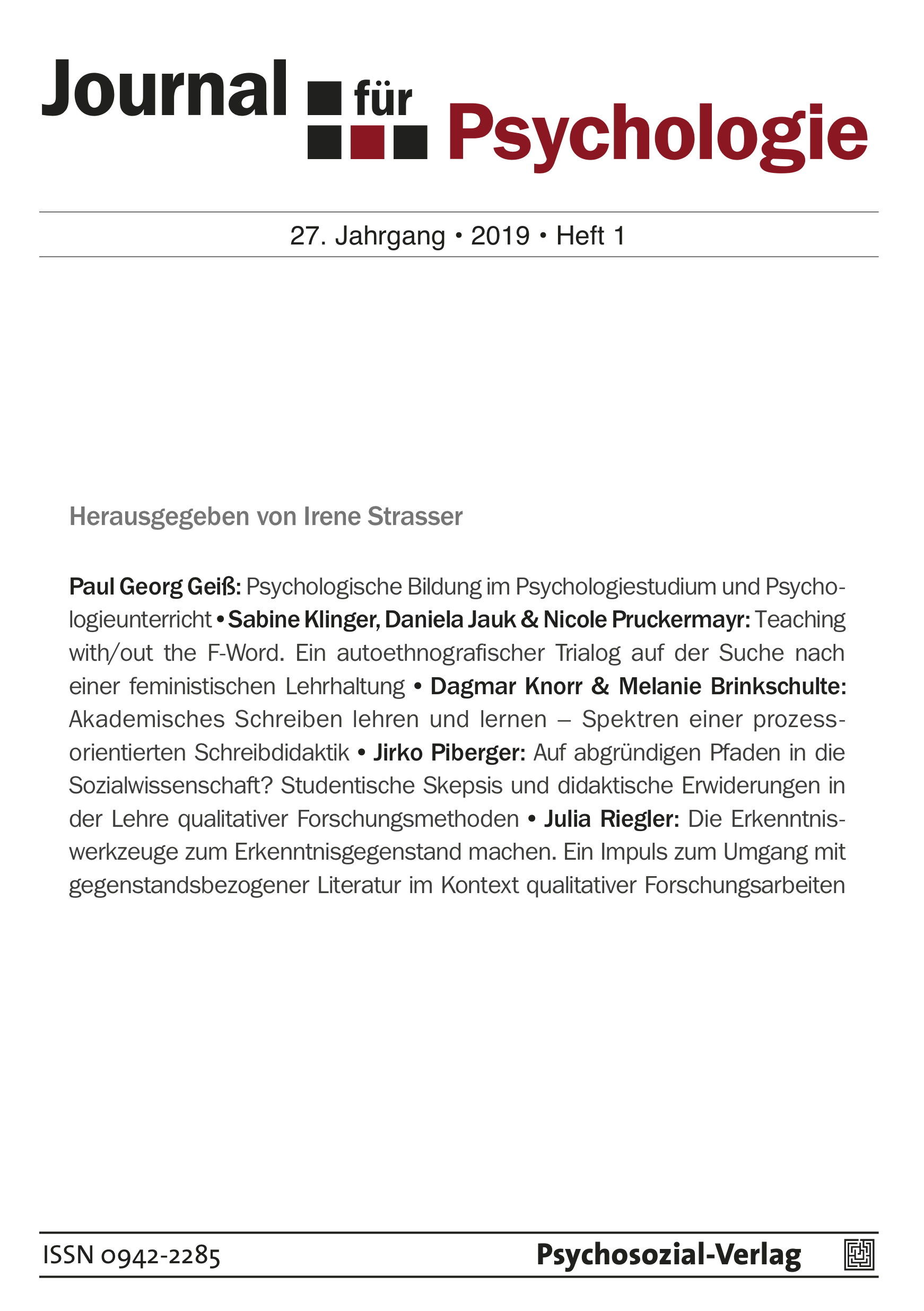Psychologische Bildung im Psychologiestudium und Psychologieunterricht
DOI:
https://doi.org/10.30820/0942-2285-2019-1-3Schlagworte:
Psychologiedidaktik, Fachdidaktik Psychologie, psychologische Bildung, Psychological Literacy, EinführungskursAbstract
In der amerikanischen und britischen Hochschuldidaktik wurde psychologische Bildung (»Psychological Literacy«) zur Leitidee für die Vermittlung von Psychologie. Psychologische Bildung ist auch ein anstrebenswertes Ziel für die Sekundarstufe II, da sie einen fachspezifischen Beitrag zur Allgemeinbildung zu leisten vermag. Die Definition von McGovern et al. (2010) ist jedoch nicht hinreichend domänenspezifisch ausgerichtet, um vor allem gymnasiale und universitäre Einführungskurse gut anleiten zu können. Dieser Beitrag zeigt, wie Sternbergs triarchisches Psychologiedidaktikmodell verwendet werden kann, um ein fachspezifischeres Verständnis von psychologischer Bildung zu entwickeln, das psychologisches Wissen, psychologische Denkfertigkeiten und reflexive psychologische Haltungen verbindet und dadurch einen kritischen Gebrauch der Alltagspsychologie ermöglicht. Wenn solche psychologische Denkfertigkeiten und Haltungen effizienter in Einführungskursen vermittelt werden sollen, dürfen die Lerngegenstände nicht unkritisch die disziplinäre Struktur des Faches »abbilddidaktisch« spiegeln, sondern müssen überlegter und selektiver hinsichtlich ihres Beitrags zur psychologischen Bildung ausgewählt werden. Gleichzeitig verweist der psychologische Bildungsbegriff auf die allgemeinbildenden Aspekte der Hochschuldidaktik, die in der Berufsbildung von Psychologen und Nichtpsychologen zu berücksichtigen sind.Veröffentlicht
07.11.2019
Zitationsvorschlag
Geiß, Paul Georg. 2019. „Psychologische Bildung Im Psychologiestudium Und Psychologieunterricht“. Journal für Psychologie 27 (1):3-29. https://doi.org/10.30820/0942-2285-2019-1-3.
Ausgabe
Rubrik
Schwerpunkt
Lizenz
Diese Lizenz erlaubt die private Nutzung und unveränderte Weitergabe, verbietet jedoch die Bearbeitung und kommerzielle Nutzung. Weitere Informationen finden Sie unter: https://creativecommons.org/licenses/by-nc-nd/4.0/
Die Bedingungen der Creative-Commons-Lizenz gelten nur für Originalmaterial. Die Wiederverwendung von Material aus anderen Quellen (gekennzeichnet mit Quellenangabe) wie z. B. Schaubilder, Abbildungen, Fotos und Textauszüge erfordert ggf. weitere Nutzungsgenehmigungen durch den jeweiligen Rechteinhaber.



